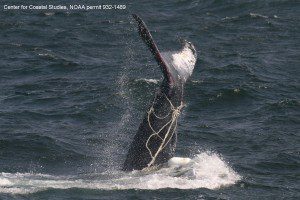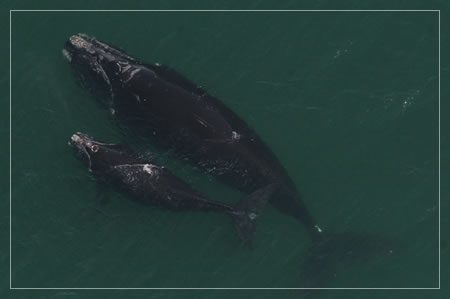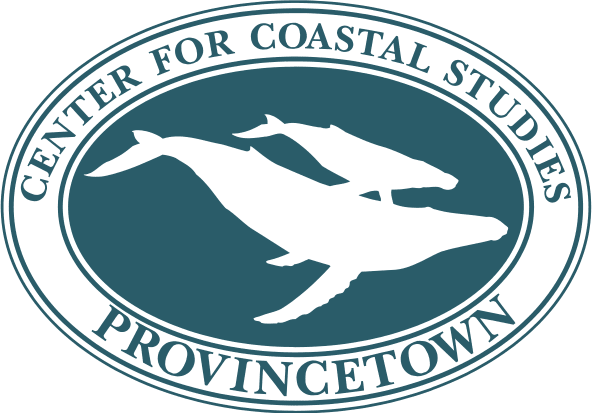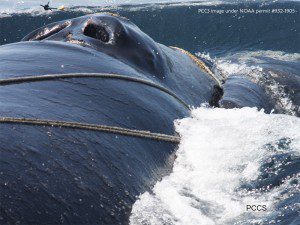Thanksgiving Day, 2014
On Thanksgiving Day in 1984, researchers from the Center for Coastal Studies (CCS) took to the icy waters of Provincetown Harbor to free a humpback whale named Ibis from a heavy, dragging mass of fishing gear and line. In doing so, they became the first group to successfully disentangle a free-swimming whale.
Today, the Marine Animal Entanglement Response (MAER) team at CCS is recognized as a world leader in the field of whale rescue. Over the past 30 years the Center has freed more than 200 marine animals, including whales, seals and sea turtles, from life threatening entanglements, using techniques and tools developed by Center staff.
Due to the endangered status of many of these animals (especially the North Atlantic right whale, which numbers only about 500) the successful release of just one individual may have a profound effect on the recovery of the population as a whole.
Efforts to expand the reach of whale rescue efforts began in 1994 when CCS partnered with the National Marine Fisheries Service to form the Atlantic Large Whale Disentanglement Network, with trained and equipped responders from the Bay of Fundy to Florida. Since then, CCS has travelled overseas to conduct trainings with teams from Australia, Mexico, South Africa, and hosted trainees from Argentina, Brazil, Canada, the Dominican Republic, Puerto Rico and Great Britain.
In addition to disentanglement the Center has conducted extensive research to increase and improve information about large whale entanglement. This includes investigations into the population impact of entanglement on humpback and right whales. An ongoing study, based on the scars left on entangled humpback whales, indicates that an average of 12% of the population becomes entangled annually.
 Entanglement is a worldwide issue, occurring wherever marine animals and fisheries overlap. In a new initiative to mitigate human impacts to whales, CCS is partnering with the International Whaling Commission (IWC) to expand the global capacity for understanding, responding to, and ultimately preventing entanglements.
Entanglement is a worldwide issue, occurring wherever marine animals and fisheries overlap. In a new initiative to mitigate human impacts to whales, CCS is partnering with the International Whaling Commission (IWC) to expand the global capacity for understanding, responding to, and ultimately preventing entanglements.
In one major initiative the Center will continue to build on an existing collaboration with the IWC to develop a worldwide network of professionally trained and equipped entanglement responders. According to the program’s coordinator David Mattila, a former CCS scientist and currently a shared staff between CCS and IWC, “so far the program has reached more than 500 scientists, conservationist and government representatives from over 20 countries, and has been highly commended by countries and NGOs from all points of view about whales and conservation.â€
The program builds capacity through “in country†training workshops using a consensus curriculum that follows training techniques first developed by CCS and which are now endorsed by the heads of all existing National Entanglement Response Networks, and by the 88 member countries of the IWC. The strategy also includes identifying key trainees for subsequent apprenticeships at CCS. Not only will the program increase the potential for survival of entangled whales, but it will also ensure that disentanglement operations are conducted to the highest safety standards, minimizing risk of injury to both humans and animals.
While the rescue of individuals certainly aids species preservation and recovery, the best long-term solution to the marine animal entanglement problem is prevention. To that end, the Center continues to work with fisheries managers to explore technologies and techniques to reduce the frequency and impact of entanglement on marine animals.
About MAER
The Center for Coastal Studies MAER program is federally-authorized to disentangle whales and sea turtles. Disentanglement work is supported by grants from the National Marine Fisheries Service (NMFS) and the Massachusetts Division of Marine Fisheries (MA-DMF). Support for the Marine Animal Response Team also comes from a grant issued by Massachusetts Environmental Trust and contributions from private foundations and citizens.
Off southern New England please report live or dead marine animal entanglements to the MAER Hotline (1-800-900-3622) or hail the USCG on VHF 16.

Our Work
Humpback Whale Research
Right Whale Research
Marine Animal Entanglement Response
Marine Geology Department
Water Quality Monitoring Program
Marine Fisheries Research
Seal Research
Shark Research
Marine Education
Interdisciplinary
Marine Debris and Plastics Program
Marine Policy Initiative
Cape Cod Climate Change Collaborative
Publications


